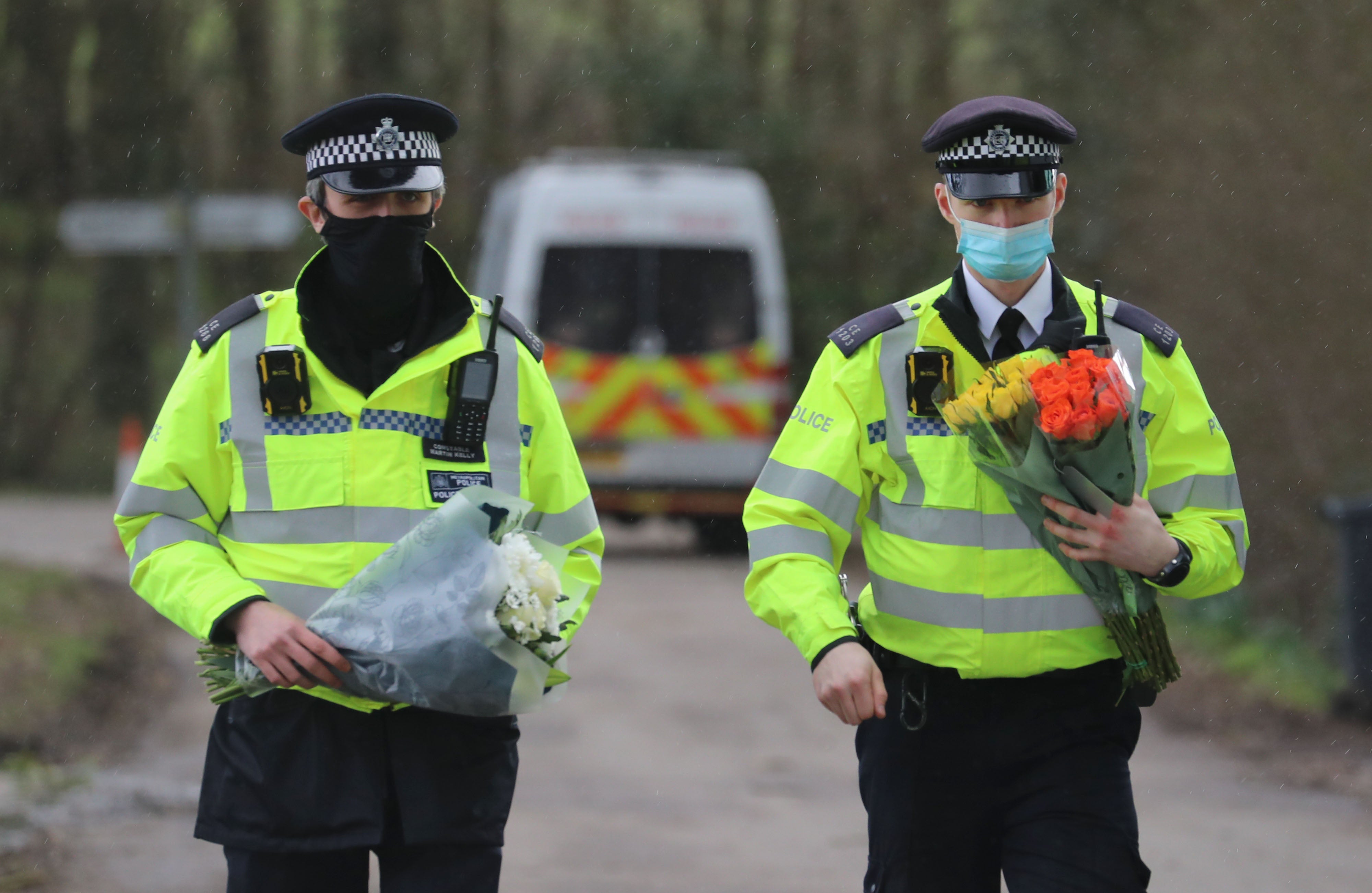CPS vows to increase prosecutions for violence against women
Exclusive: ‘There has to be change, there absolutely has to be,’ says former minister amid outpouring of anger

Your support helps us to tell the story
From reproductive rights to climate change to Big Tech, The Independent is on the ground when the story is developing. Whether it's investigating the financials of Elon Musk's pro-Trump PAC or producing our latest documentary, 'The A Word', which shines a light on the American women fighting for reproductive rights, we know how important it is to parse out the facts from the messaging.
At such a critical moment in US history, we need reporters on the ground. Your donation allows us to keep sending journalists to speak to both sides of the story.
The Independent is trusted by Americans across the entire political spectrum. And unlike many other quality news outlets, we choose not to lock Americans out of our reporting and analysis with paywalls. We believe quality journalism should be available to everyone, paid for by those who can afford it.
Your support makes all the difference.Prosecutors have vowed to tackle the yawning gap between reports of sexual violence and the number of cases that reach court.
As the death of Sarah Everard sparks a renewed push to tackle societal injustices and failures in the legal system, the Crown Prosecution Service (CPS) said it was working to drive up the number of offenders charged.
Caroline Nokes, chair of parliament’s Women and Equalities Committee, said that now was a “pivotal moment” amid an outpouring of anger and demands for change.
“There is no silver bullet but it comes down to men treating women with respect, understanding what the legal boundaries are and respecting the law,” the former Conservative minister told The Independent.
She highlighted official statistics showing that in the year to September, only 1.5 per cent of recorded rapes and 3.6 per cent of all sexual offences were prosecuted in England and Wales.
“It’s not just about rapists thinking they’re going to get away with it, it’s about women not thinking there is any point reporting it,” Ms Nokes said. “There has to be change, there absolutely has to be.”
The CPS has launched a strategy to narrow the gap between the number of offences reported to the police and cases going to court, and encourage more women to report offences and have confidence that they will be supported through the system.
A spokesperson said: “We are committed to making real, lasting improvements to how these horrific offences are handled, so that every victim will feel able to come forward with confidence that their complaint will be fully investigated and, where the evidence supports, charged and prosecuted.
“Along with the police, the CPS is focused on narrowing the gap between reported incidents of violence against women and girls, and cases reaching court.
“An extensive programme of work is underway to drive up the number of strong prosecutions, including delivering on our five-year rape strategy which launched last summer. Our most recent data shows an encouraging rise in both case referrals and the number of suspects charged with rape.”
Katie Russell, a spokesperson for Rape Crisis, said Ms Everard’s disappearance had triggered an “outpouring of hurt and righteous anger”.
She told The Independent that it was “heart-rending” that even in 2021, figures suggest the vast majority of women and girls have experienced sexual harassment or violence.
Ms Russell warned that many incidents go unreported because of a lack of confidence in the justice system.
“The overwhelming majority of those who do report these incidents don’t see any kind of justice – they don’t even see the perpetrator charged let alone convicted and sentenced,” she added.
“It’s a tragedy that we’re living in a time where this kind of violence is still being perpetrated with impunity.
“There is clearly a recognition that something needs to change but we need more than recognition. We need radical and urgent action.”
It came after thousands of women shared stories of harassment and abuse online, following widespread criticism of “victim-blaming” by some public figures who reacted to Ms Everard’s disappearance by suggesting that women should not walk home alone or in the dark.
Ms Nokes said women had been sharing the same safety fears and stories of harassment “time and time again”, adding: “It is important that the government recognises how significant and big the problem is and take some concrete steps towards addressing it.”
Marsha De Cordova, the shadow women and equalities minister, called for there to be better education around sexual harassment in schools in a bid to tackle abuse of women in public.
The Labour MP for Battersea, who lives in Clapham, told The Independent: “More needs to be done to protect women and girls, such as educating pupils at school on matters of consent. Young people must be taught to respect our spaces and bodies. Also, we need education in the workplace, as especially with male-dominated sectors sexism can be very entrenched.

“And the government needs to introduce its long-awaited violence against women and girls strategy. Misogyny should be seen as a hate crime. I also feel our public spaces need to be safer. They need to be well lit. You need councils to have adequate funding to maintain areas and make sure they are well lit, but councils have had so many cuts.”
Stella Creasy, the Labour MP for Walthamstow, has been campaigning for the police to start recording misogyny as a hate crime for the last three years.
She is calling for the change to be enacted through an amendment to the Domestic Abuse Bill, and an upcoming sentencing bill.
“If police were to record when a hate crime toward women is carried out like they do with other hate crimes that are reported, then that builds a picture of abuse, harassment and violence which women face,” Ms Creasy told The Independent.
The government reopened a nationwide call for evidence and survey on tackling violence against women and girls on Friday evening, aiming to take testimonies from victims and survivors.
It said the project, which originally closed in February, would run for another two weeks “in recognition of the widespread sharing of experiences on social media in response to the tragic developments in the Sarah Everard case”.
The findings will be fed into the government’s Tackling Violence Against Women and Girls Strategy, which will be published in the summer.
Priti Patel, the home secretary, said Ms Everard’s death had “reminded women everywhere of the steps we all take on a daily basis, without a second thought, to keep ourselves safe”.
“The government is listening,” she added. “Everyone should be free to walk our streets without the slightest fear. With Sarah and her family in my thoughts and prayers, I will continue to do all I can in my role as home secretary to protect women and girls.”



